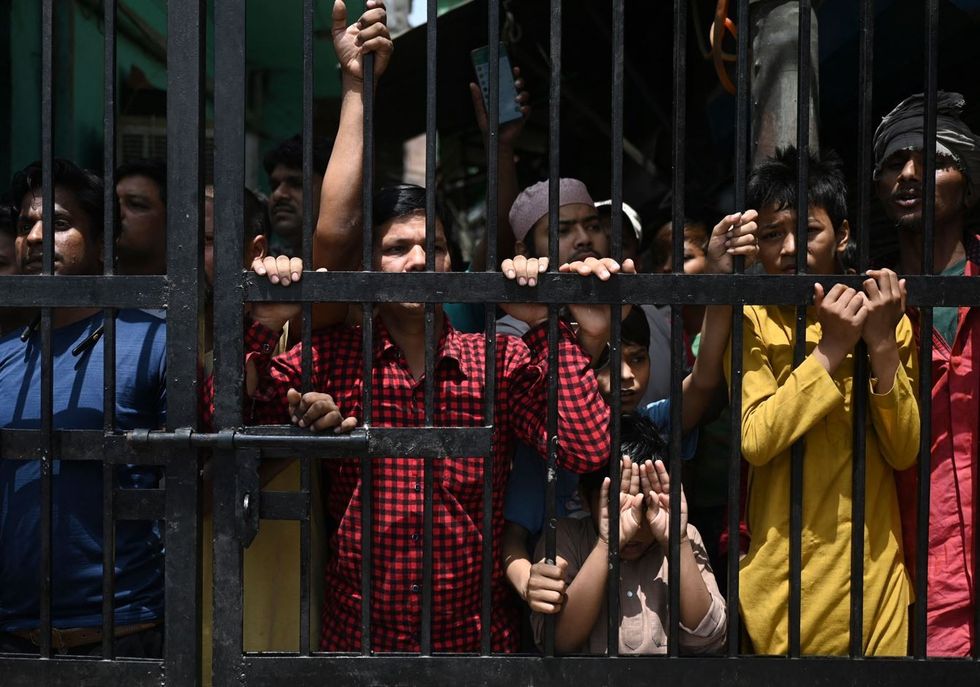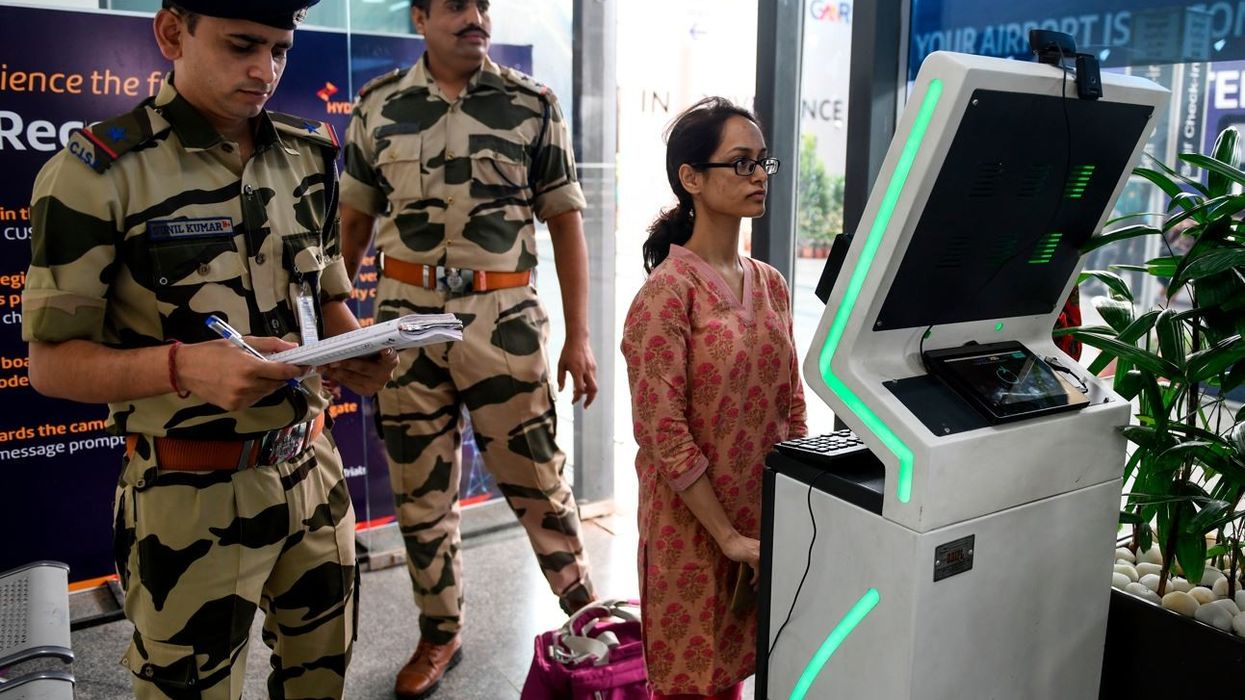AFTER communal clashes in Delhi’s Jahangirpuri area last year, police said they used facial recognition technology to identify and arrest dozens of men, the second such instance after a more violent riot in the Indian capital in 2020.
In both cases, most of those charged were Muslims, leading human rights groups and tech experts to criticise India’s use of the AI-based technology to target poor, minority and marginalised groups in Delhi and elsewhere in the country.
As India rolls out AI tools that authorities say will increase efficiency and improve access, tech experts fear the lack of an official policy for the ethical use of AI will hurt people at the bottom, entrenching age-old bias, criminalising minorities and channeling most benefits to the rich.
“It is going to directly affect the people living on the fringes - the Dalits, the Muslims, the trans people. It will exacerbate bias and discrimination against them,” said Shivangi Narayan, a researcher who has studied predictive policing in Delhi.
With a population of 1.4 billion powering the world’s fifth-biggest economy, India is undergoing breakneck technological change, rolling out AI-based systems – in spheres from health to education, agriculture to criminal justice – but with scant debate on their ethical implications, experts say.
In a nation beset by old and deep divisions, be it of class, religion, gender or wealth, researchers like Narayan – a member of the Algorithmic Governance Research Network – fear that AI risks exacerbating all these schisms.
“We think technology works objectively. But the databases being used to train AI systems are biased against caste, gender, religion, even location of residence, so they will exacerbate bias and discrimination against them,” she said.
Facial recognition technology - which uses AI to match live images against a database of cached faces - is one of many AI applications that critics say risks more surveillance of Muslims, lower-caste Dalits, indigenous Adivasis, transgender and other marginalised groups, all while ignoring their needs.
Linking databases to a national ID system and a growing use of AI for loan approvals, hiring and background checks can slam doors firmly shut on the marginalised, said Siva Mathiyazhagan, an assistant professor at the University of Pennsylvania. The growing popularity of generative AI applications such as chatbots further exacerbates these biases, he said.
“If you ask a chatbot the names of 20 Indian doctors and professors, the suggestions are generally Hindu dominantcaste surnames - just one example of how unequal representations in data lead to caste-biased outcomes of generative AI systems,” Mathiyazhagan told the Thomson Reuters Foundation.
Caste discrimination was outlawed in India 75 years ago, yet Dalits still face widespread abuse, many of their attempts at upward mobility met with violent oppression. Under-represented in higher education and good jobs despite affirmative action programmes, Dalits, Muslims and indigenous people lag higher-caste Indians in smartphone ownership and social media use, studies show.
About half of India’s population – primarily women, rural communities and Adivasis – lacks access to the internet, so “entire communities may be missing or misrepresented in datasets... leading to wrong conclusions and residual unfairness,” an analysis by Google Research showed in 2021.
The ramificiations are widespread; not least, in healthcare.
“Rich people problems like cardiac disease and cancer, not poor people’s tuberculosis, is prioritised, exacerbating inequities among those who benefit from AI and those who do not,” researchers said in the Google analysis.

Similarly, mobile safety apps that use data mapping to flag unsafe areas are skewed by middle-class users who tend to mark Dalit, Muslim and slum areas as dodgy, potentially leading to over-policing and unwarranted mass surveillance.
“The irony is that people who are not counted in these datasets are still subject to these data-driven systems which reproduce bias and discrimination,” said Urvashi Aneja, founding director of Digital Futures Lab, a research collective.
India’s criminal databases are particularly problematic, as Muslims, Dalits and indigenous people are arrested, charged and incarcerated at higher rates than others, official data show.
The police registers are used for potential AI-assisted predictive policing to identify who is likely to commit a crime. Generative AI may come to court, with the Punjab and Haryana high court earlier using ChatGPT to decide whether to award bail for a suspect in a murder case - a first in the country.
“Any new AI-based predictive policing system will likely only perpetuate the legacies of caste discrimination and the unjust criminalisation and surveillance of marginalised communities,” said Nikita Sonavane, co-founder of the Criminal Justice and Police Accountability Project, a non-profit.
“Policing has always been casteist in India, and data has been used to entrench caste-based hierarchies. What we’re seeing now is the creation and rise of a digital caste panopticon.”
The ministry of information technology did not respond to a request for comment.
Governments worldwide have been slow to regulate AI. China’s draft rules for generative AI took effect last month, while the EU’s AI Act is in the final stage of negotiations, and the U.S. AI Bill of Rights offers guidelines for responsible design and use.
India does not have an AI law, only a strategy from government thinktank NITI Aayog that states that AI systems must not discriminate on the basis of religion, race, caste, sex, descent, place of birth or residence, and that they must be audited to ensure they are impartial and free from bias. But there is little discussion in India about bias in AI, even as there is growing awareness of caste in the tech industry in the United States, with California poised to become the first state to ban caste discrimination, after Seattle became the first U.S. city to do so.
South Asian immigrant communities make up large numbers of tech workers in the United States, where Dalit engineers - including women - have complained of discrimination and abuse from high-caste men.
Having mostly high-caste men design AI tools can unduly benefit the privileged and altogether bypass women, lower caste and other marginalised groups, said Aneja. “How much agency do women or lower-caste groups have to check or contradict what’s coming out of a system? Especially generative AI, which is designed to seem human-like,” she said.
“A technical fix cannot take existing bias out of the system; what’s needed is a better understanding of the biases and their impacts in different social contexts.
“We should shed the assumption that bias is going to go away - instead, we should accept that bias is always going to be there, and design and build systems accordingly,” she said.












